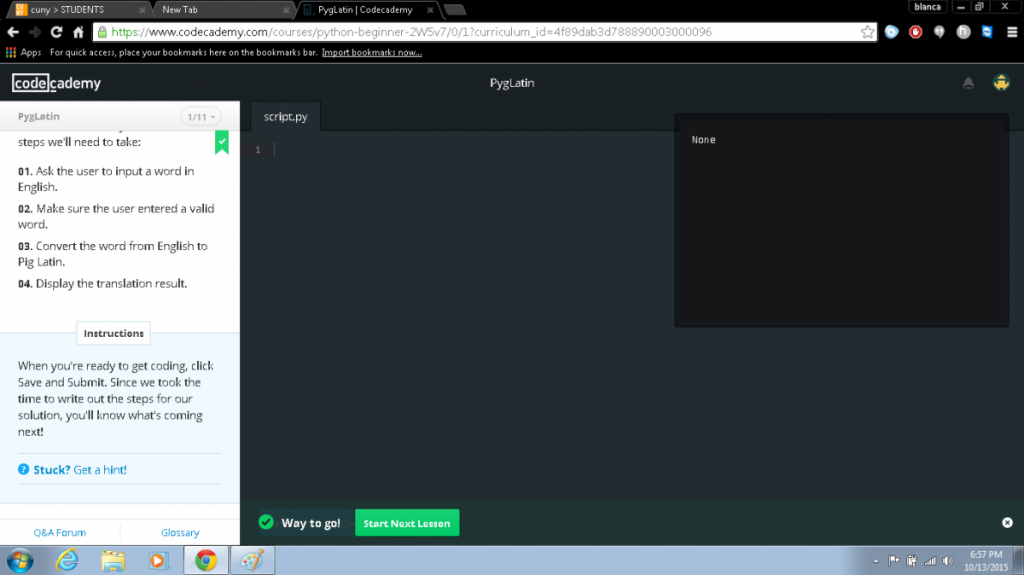The first page only shows examples for the user to see before starting to use it.
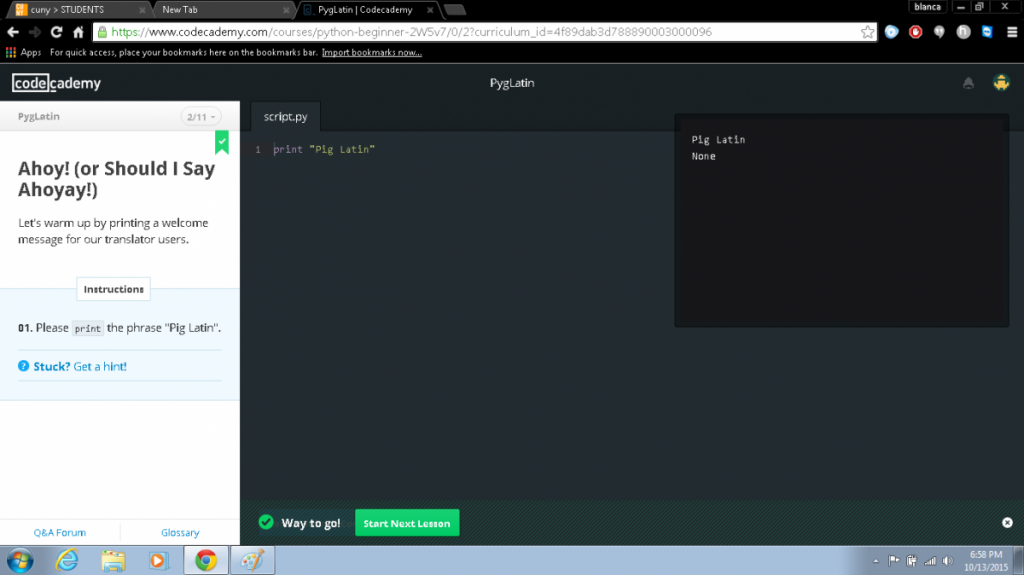
The second page is just introducing Pig Latin where I had to write it out.
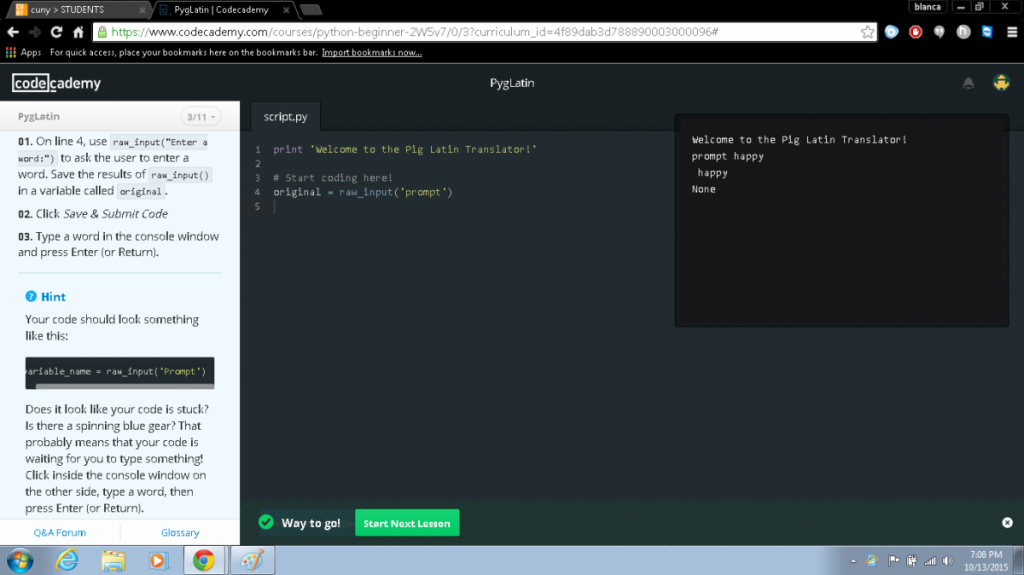
On the third page I introduced raw_input() where it’ll wait for me to type something and press enter.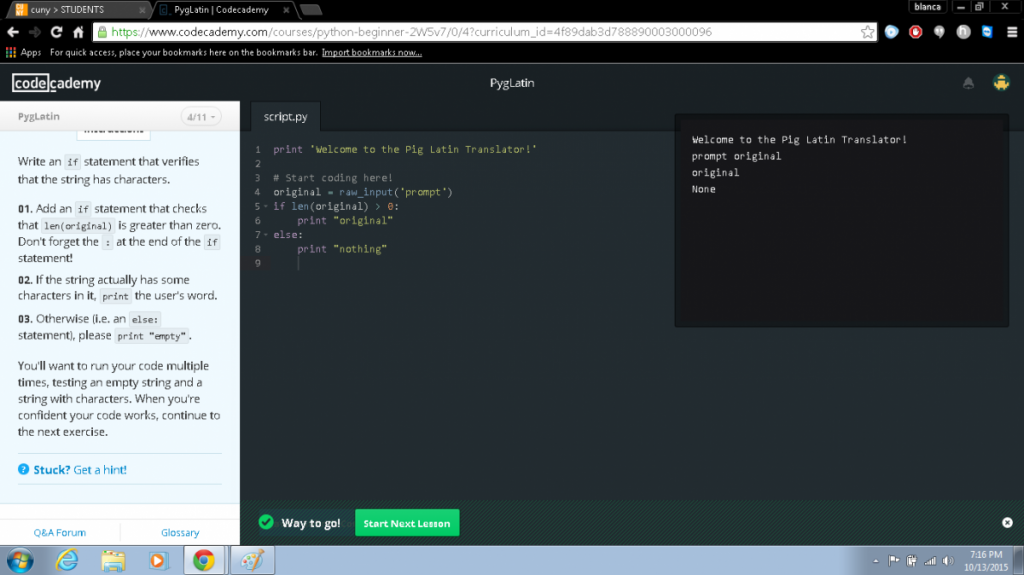
In this page I added the if statement that checks that len(original) is > 0.
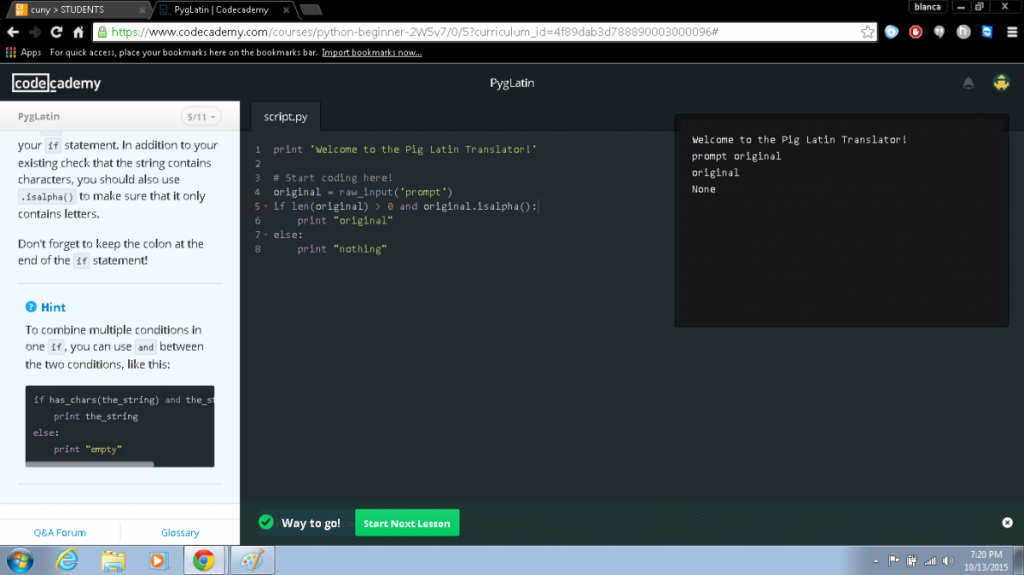 I inserted and to add a second condition to my statement.
I inserted and to add a second condition to my statement.
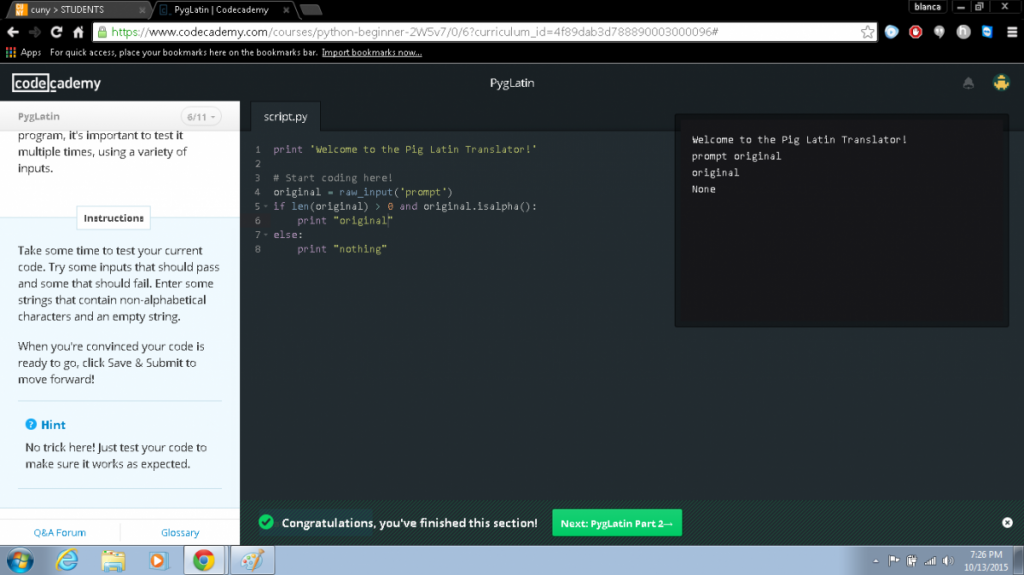 I tested my code and made sure it was ready before I continued.
I tested my code and made sure it was ready before I continued.
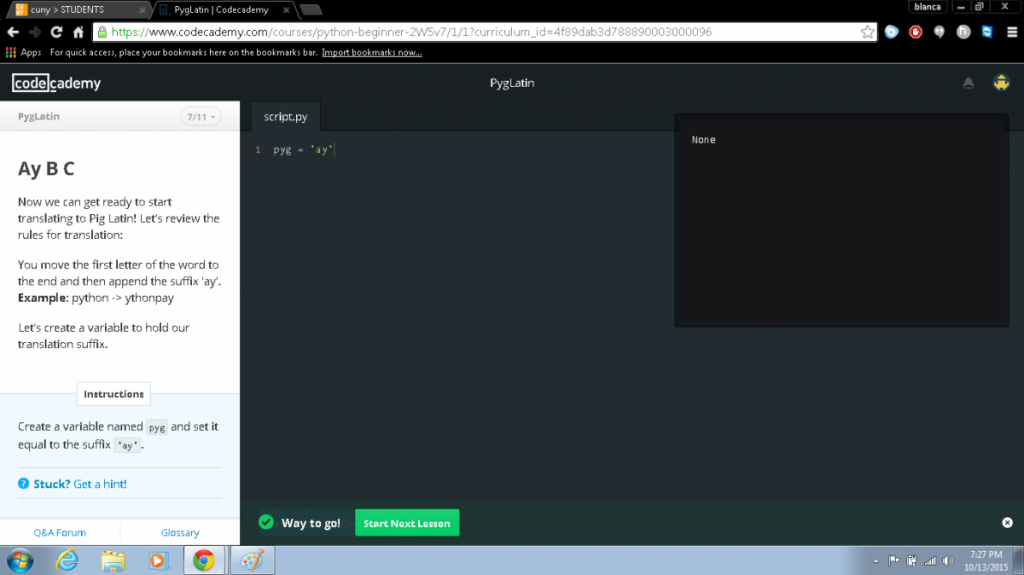 During this screenshot, I was beginning to translate to Pig Latin.
During this screenshot, I was beginning to translate to Pig Latin.
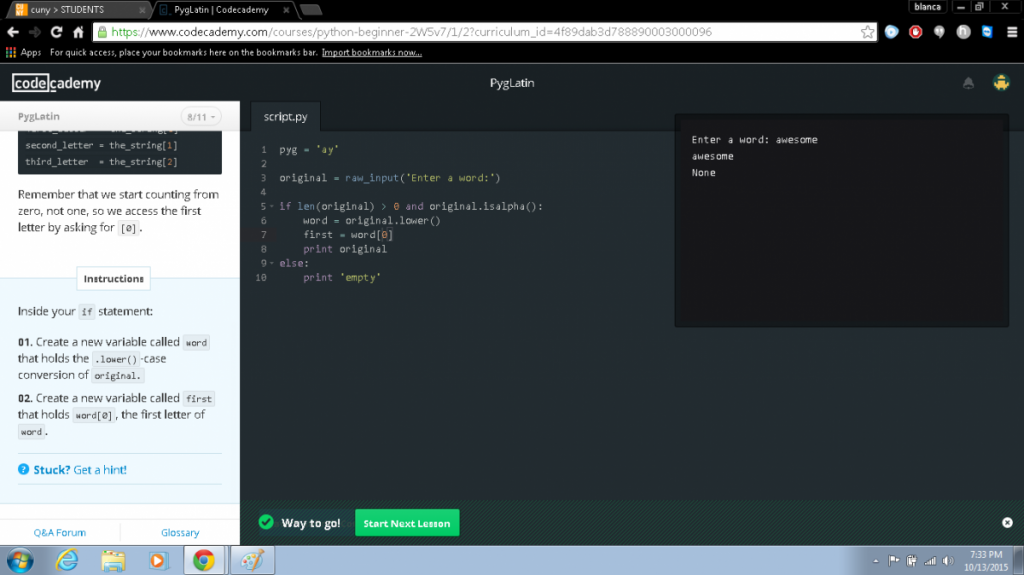 In this slide I made the letters in our word lowercase by plugging in the function .lower()
In this slide I made the letters in our word lowercase by plugging in the function .lower()
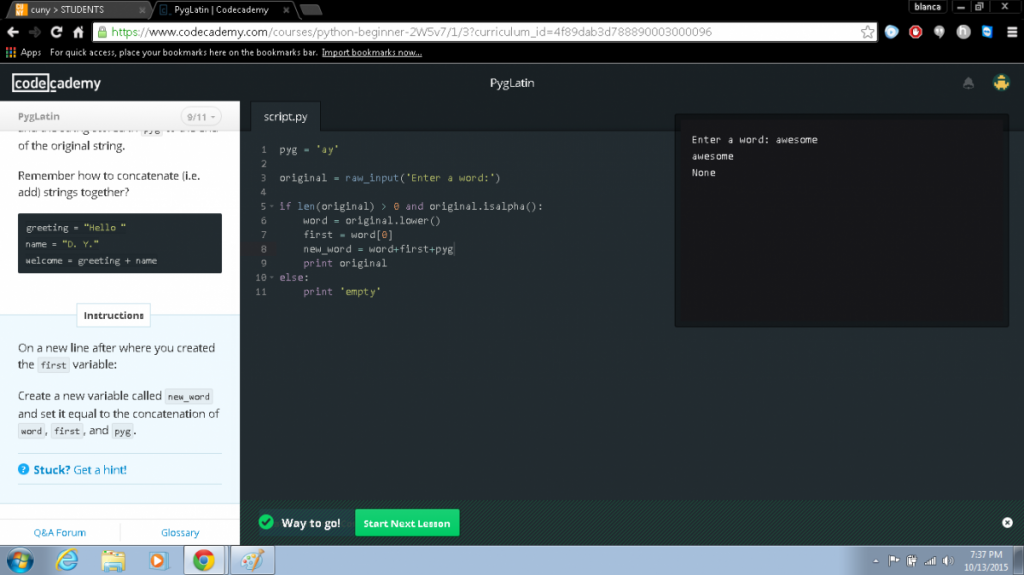 In part 9, I concatenated the strings together .
In part 9, I concatenated the strings together .
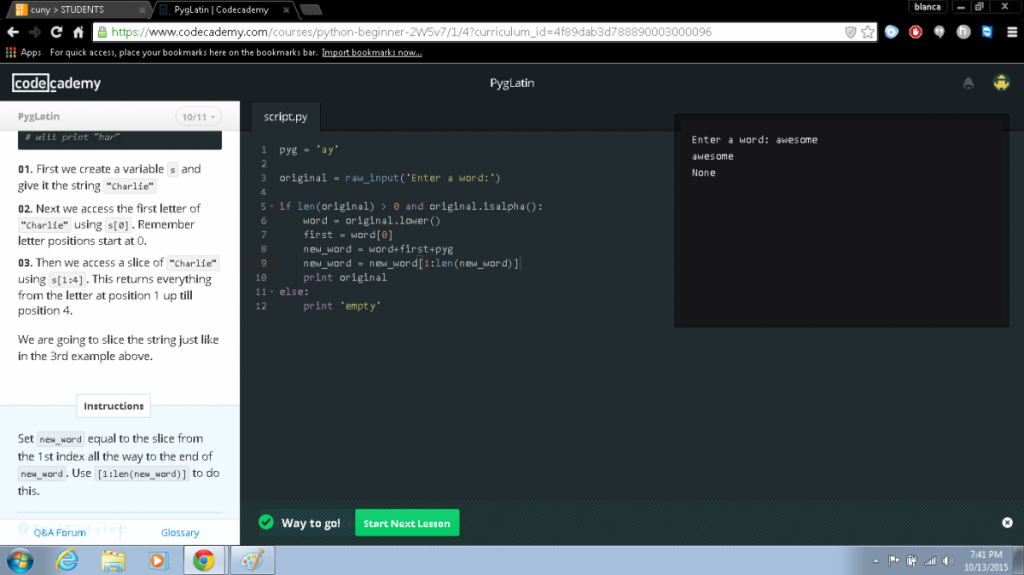 Just like in the example, in this slide all I did was slice the string from the 1st index all the way to the end of new_word.
Just like in the example, in this slide all I did was slice the string from the 1st index all the way to the end of new_word.
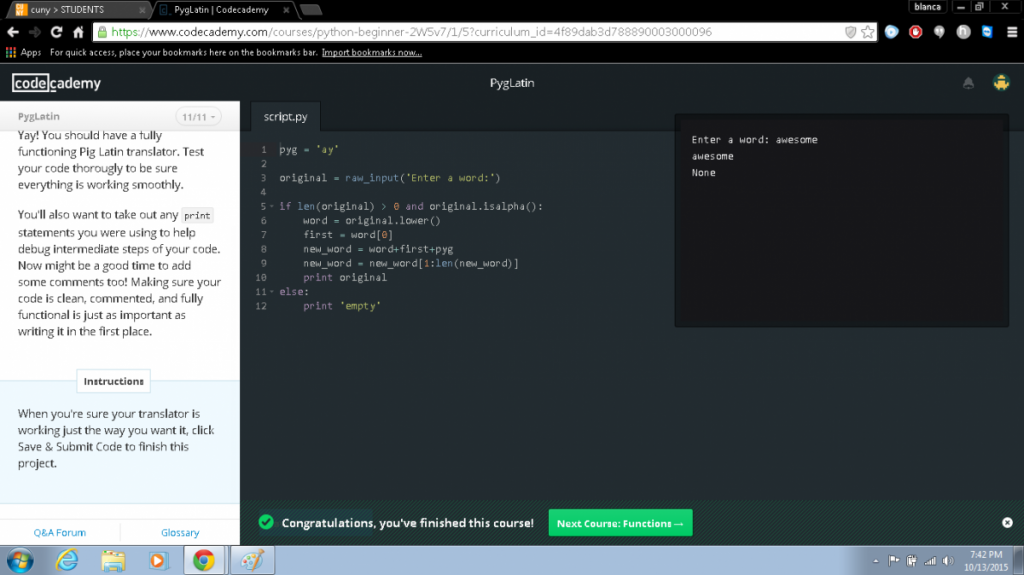 And now I am done, all I had to do was test it and that’s it!
And now I am done, all I had to do was test it and that’s it!

